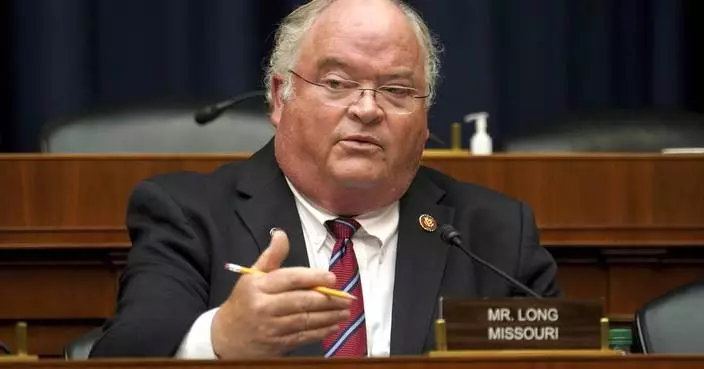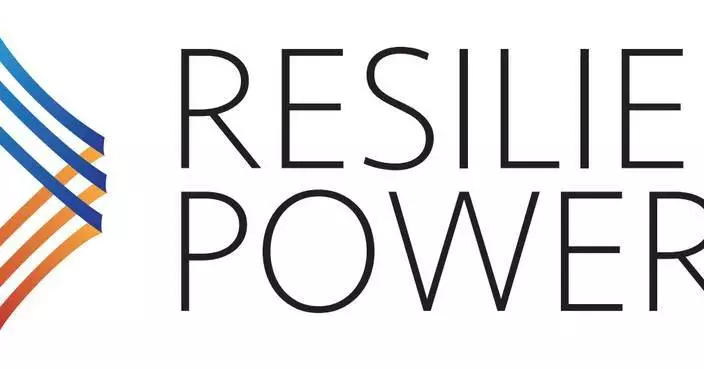It's just a single word, but it's hard to miss in North Korea. It's splashed across countless propaganda signs, seeded through dozens of state media reports, at the beating heart of emotional pop songs and on the lips of the earnest guides who show off the grand monuments built in its honor.
The word is Juche (pronounced ju-chay), and while it's technically a political ideology, it can seem more like a religion in its ability to inspire devotion among North Koreans and its ubiquity as a symbol of state power. Though the usual English translation is "self-reliance," the concept flummoxes many outsiders.
Pyongyang uses the term liberally, including in previous years at the United Nations, where a North Korean official will speak Monday at the annual General Assembly. The nation calls nuclear bombs the "treasured sword" of Juche. Newly unveiled weapons fire "Juche shells." The August test of a new rocket launcher heralded the "rapid development of the Juche-oriented defense industry."
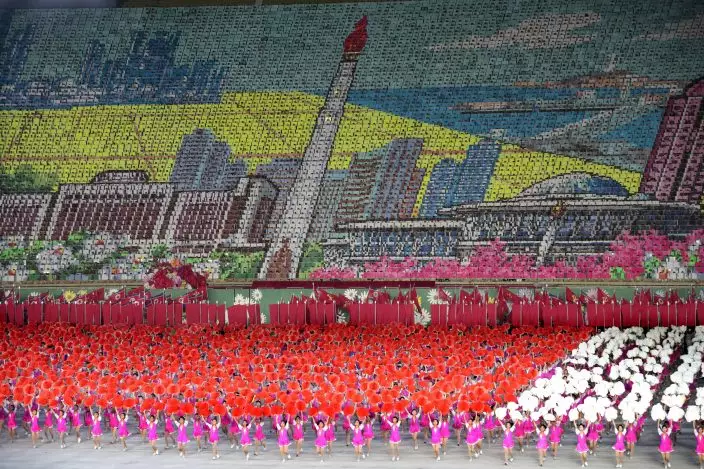
In this Sept. 11, 2019, photo, North Korean dancers perform as mosaic of The Tower of The Juche Idea is formed during a mass games performance titled: "The Land of the People" at May Day Stadium in Pyongyang, North Korea. It's just a single word, but it's hard to miss in North Korea: Splashed across countless propaganda signs, seeded through dozens of state media reports, at the beating heart of emotional pop songs and on the lips of the earnest guides who show off the grand monuments built in its honor. The word is Juche, and while it's technically a political ideology, in its difficulty for many outsiders to grasp, its ability to inspire devotion among North Koreans, and its ubiquity as a symbol of state power, it can seem more like a religion. (AP PhotoDita Alangkara)
At a Pyongyang karaoke parlor, visitors can choose to belt out at least two Juche-related titles: "Juche Iron Is the Best" and "The Way of Juche Is the Way of Korea."
Juche is even used to count the passing years: This year is Juche 108, because it's been 108 years since national founder Kim Il Sung was born.
Though it's been around for decades, some observers believe Juche has been embraced in recent years with renewed vigor by leader Kim Jong Un, the third generation of his family to rule North Korea, as he steps out with growing confidence onto the world stage for a series of high-stakes summits over his nuclear weapons program and the international sanctions crippling his economy.
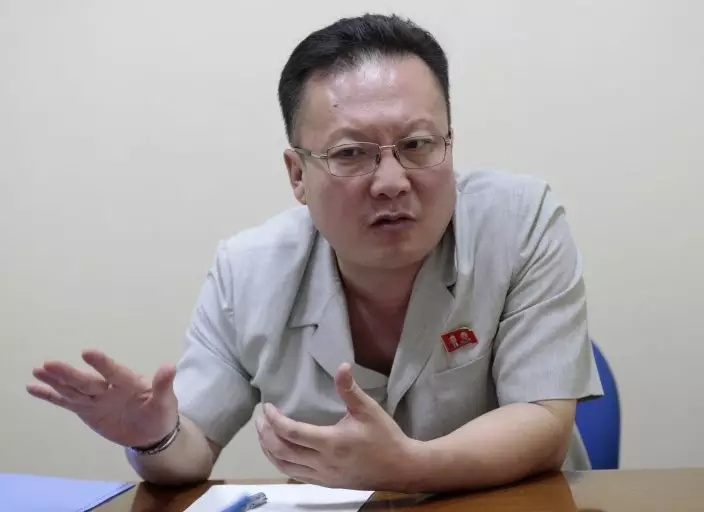
In this Sept. 12, 2019, photo, Kim Chang Kyong, Juche expert who is also the head of North Korean Social Scientists Association, speaks during an interview with The Associated Press in Pyongyang, North Korea. It's just a single word, but it's hard to miss in North Korea: Splashed across countless propaganda signs, seeded through dozens of state media reports, at the beating heart of emotional pop songs and on the lips of the earnest guides who show off the grand monuments built in its honor. The word is Juche, and while it's technically a political ideology, in its difficulty for many outsiders to grasp, its ability to inspire devotion among North Koreans, and its ubiquity as a symbol of state power, it can seem more like a religion. (AP PhotoDita Alangkara)
North Korea has now officially "enshrined 'self-reliance and self-development'" as the new ideological theme of the Kim Jong Un era, taking the place of his father Kim Jong Il's military-first policies, said Joshua Pollack, a North Korea expert at the Middlebury Institute of International Studies at Monterey and a close reader of its propaganda.
"The essence of it is that independent progress in science and technology is supposed to resolve national defense problems and economic problems alike," he said.
Some critics call Juche a successful, but vaguely defined, piece of propaganda that allows North Korea to energize its citizens with a nationalistic rallying cry amid a barrage of sanctions while also dodging responsibility over claims of economic mismanagement. For calamity after calamity — the collapse of the Soviet Union, the North's major aid backer, in the 1990s; a devastating famine that same decade; relentless economic sanctions — there is always an answer and a solace: Juche.
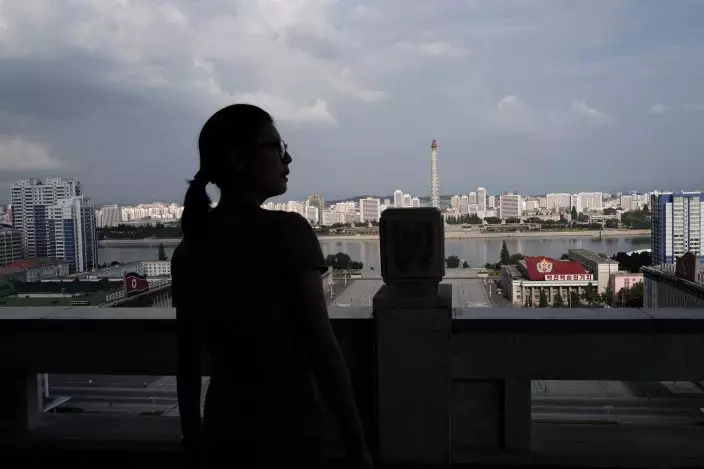
In this July 16, 2019, photo, a woman stands against the 170-meter-tall Tower of Juche Idea, center, in Pyongyang, North Korea. The word Juche is splashed across countless propaganda signs in North Korea and featured in hundreds of state media reports, and while it’s technically a political ideology, it can seem more like a religion because of its difficulty for many outsiders to grasp and ability to inspire devotion among North Koreans. (AP PhotoVincent Yu)
Despite the slogan, the country is heavily reliant on outside aid. South Korea, for example, has spent about $5.8 billion on North Korea aid and economic projects through a government fund established in 1991 to promote inter-Korean relations, according to the South's state-run Export-Import Bank of Korea, which operates the fund.
"The 'self-reliance' claims of Juche notwithstanding, North Korea has long survived on the largesse of the international community," Stephan Haggard, a North Korea expert at the Peterson Institute for International Economics in Washington, has written.
Kim Jong Un has made the development of nuclear bombs and the struggling economy twin priorities of his rule, and repeated references to Juche run through the propaganda centered on both efforts. There's a debate, however, among outsiders on what, exactly, the term means under Kim's rule — and why it's important.
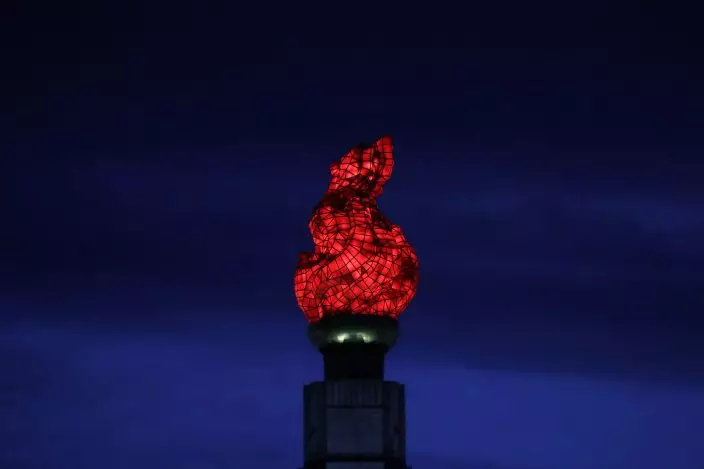
In this Sept. 15, 2018, photo, the Tower of Juche Idea is lit up in Pyongyang, North Korea. The word Juche is splashed across countless propaganda signs in North Korea and featured in hundreds of state media reports, and while it’s technically a political ideology, it can seem more like a religion because of its difficulty for many outsiders to grasp and ability to inspire devotion among North Koreans. (AP PhotoKin Cheung)
North Koreans, by contrast, harbor little doubt.
"The essence of the Juche idea is that man is the master of his own destiny," Kim Chang Kyong, department head at the North's Social Scientists Association and an expert in Juche, said in an interview in Pyongyang.
Understanding his country, he said, is impossible without understanding Juche because "all the achievements of the country are linked to the idea, which forms the guidelines of the party and state."
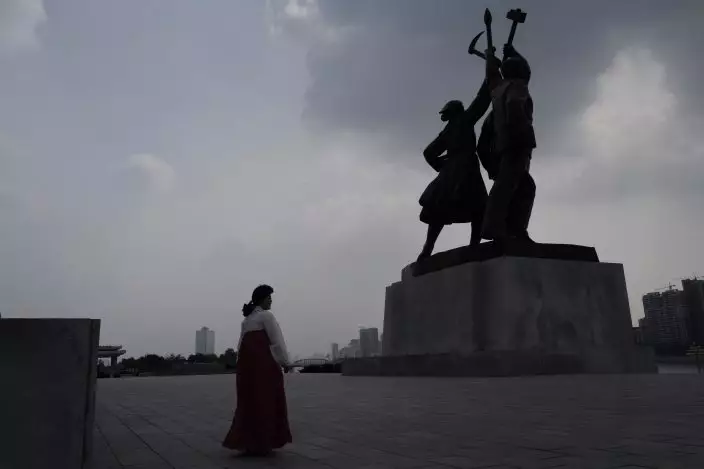
In this July 15, 2019, photo, a North Korean tourist guide walks past a statue in front of the Tower of Juche Idea in Pyongyang, North Korea. The word Juche is splashed across countless propaganda signs in North Korea and featured in hundreds of state media reports, and while it’s technically a political ideology, it can seem more like a religion because of its difficulty for many outsiders to grasp and ability to inspire devotion among North Koreans. (AP PhotoVincent Yu)
At the 170-meter (560-foot) -tall Tower of Juche Idea, a soaring testament to the concept built in 1982 for Kim Il Sung's 70th birthday, guide Choe Hye Ok has a ready definition at hand: "If one believes in the local people, and relies on them, one will get the universe. This is exactly the meaning of Juche."
For many outsiders, the more it is studied, the more the word can seem less, not more, defined.
Bruce Cumings, a leading scholar on North Korea, has written, "The closer one gets to (Juche's) meaning, the more it slips away."
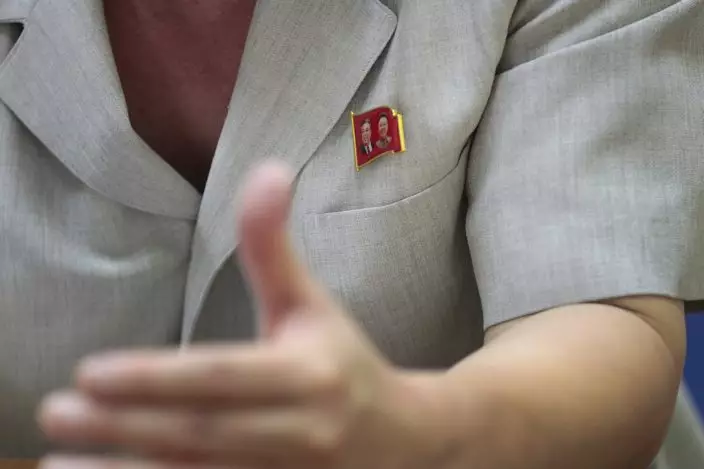
In this Sept. 12, 2019 photo, Kim Chang Kyong, Juche expert and who is also the head of North Korean Social Scientists Association, wears a pin of the late North Korean leaders Kim Il Sung and Kim Jong Il during an interview with Tthe Associated Press in Pyongyang, North Korea. It's just a single word, but it's hard to miss in North Korea: Splashed across countless propaganda signs, seeded through dozens of state media reports, at the beating heart of emotional pop songs and on the lips of the earnest guides who show off the grand monuments built in its honor. The word is Juche, and while it's technically a political ideology, in its difficulty for many outsiders to grasp, its ability to inspire devotion among North Koreans, and its ubiquity as a symbol of state power, it can seem more like a religion. (AP PhotoDita Alangkara)
Asked about Juche's meaning, Pollack said: "Long story. Hotly contested."
"There is some confusion here about Juche. We tend to render it as 'self-reliance,' but the North Koreans never do," he said. "They just spell it out as Juche, as if to indicate it's untranslatable."
Kim of the Social Scientists Association linked Juche to Kim Jong Un's ambitious construction of new skyscraper apartments, which has continued in recent years despite strengthened sanctions. "It is the might of Juche," the academic said. "Even if someone does not help us, we will build by ourselves."
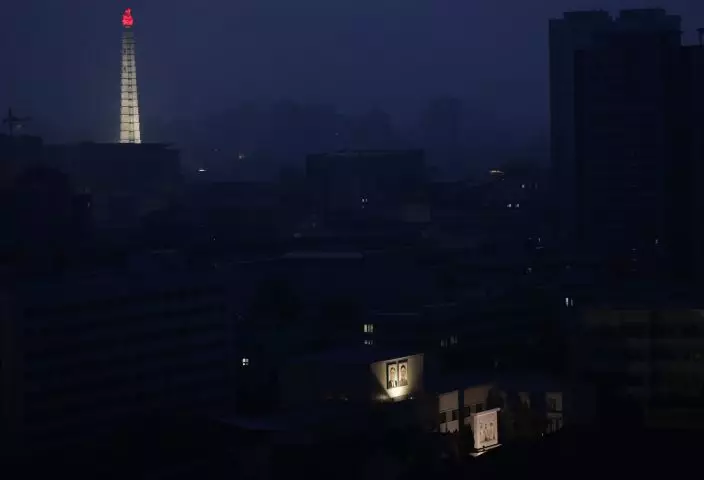
FILE - In this June 19, 2018, file photo, portraits of the late North Korean leaders Kim Il Sung and Kim Jong Il are illuminated on a building as the Tower of Juche Idea is seen in the background at dawn in Pyongyang, North Korea. The word Juche is splashed across countless propaganda signs in North Korea and featured in hundreds of state media reports, and while it’s technically a political ideology, it can seem more like a religion because of its difficulty for many outsiders to grasp and ability to inspire devotion among North Koreans. (AP PhotoDita Alangkara, File)
Kim Il Sung is credited with constructing Juche while leading Korean guerrillas in the fight against Japanese colonizing forces, while Kim Jong Il is said to have systemized the concept.
Starting in the 1970s, Juche was presented as "the highest and most up-to-date brand of progressive ideology. It justified the superiority of the North Korean leadership," Andrei Lankov, a North Korea expert at Kookmin University in Seoul, has written.
North Korean state media claim Juche followers worldwide and point to their interest as evidence of Juche's power. It's unclear how many there really are, but one devotee, Dermot Hudson, the chairman of the Juche Idea Study Group of England, said that outsiders misunderstand Juche because of prejudice and a failure to properly study the concept.
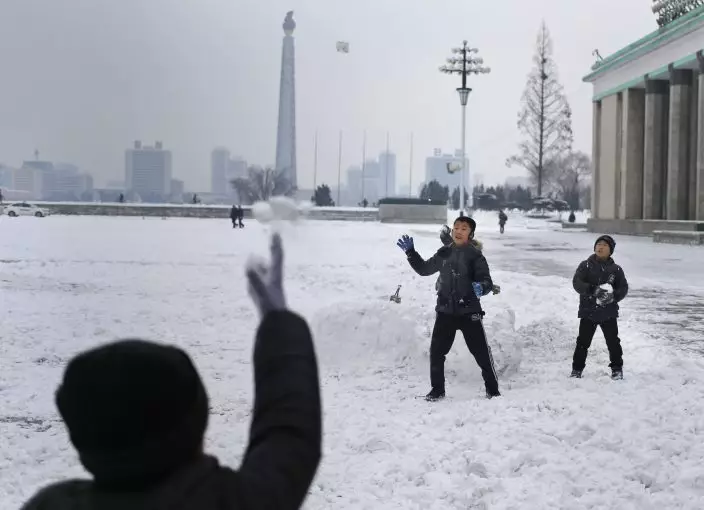
FILE - In this Dec. 16, 2018, file photo, North Korean boys play snowball fight on Kim Il Sung Square as the Tower of The Juche Idea is seen in the background in Pyongyang, North Korea, where the winter season has started. The word Juche is splashed across countless propaganda signs in North Korea and featured in hundreds of state media reports, and while it’s technically a political ideology, it can seem more like a religion because of its difficulty for many outsiders to grasp and ability to inspire devotion among North Koreans. (AP PhotoDita Alangkara, File)
Hudson is a British writer who says he became interested in Juche in the 1980s as a young communist disillusioned with the Soviet Union. He said in an email that North Koreans embrace the ideology "because it guarantees independence and guides them in building a new socialist society in which everyone can have a better life."
As he works to explain Juche, Kim, the North Korean academic, compares it to another uniquely Korean word — kimchi, the Korean staple of fermented spicy vegetables. "Kimchi was created in our country. But for us it is just kimchi. Nobody uses another word to describe kimchi," Kim said.
"There is no way to directly translate it into English. I can only translate Juche as Juche," he said. At the end of an hour-long discussion of the word, he adds, "It would take days to explain the Juche idea."
Foster Klug, the AP's news director for the Koreas, Japan and the South Pacific, has covered North Korea since 2005. Follow him at www.twitter.com/apklug








